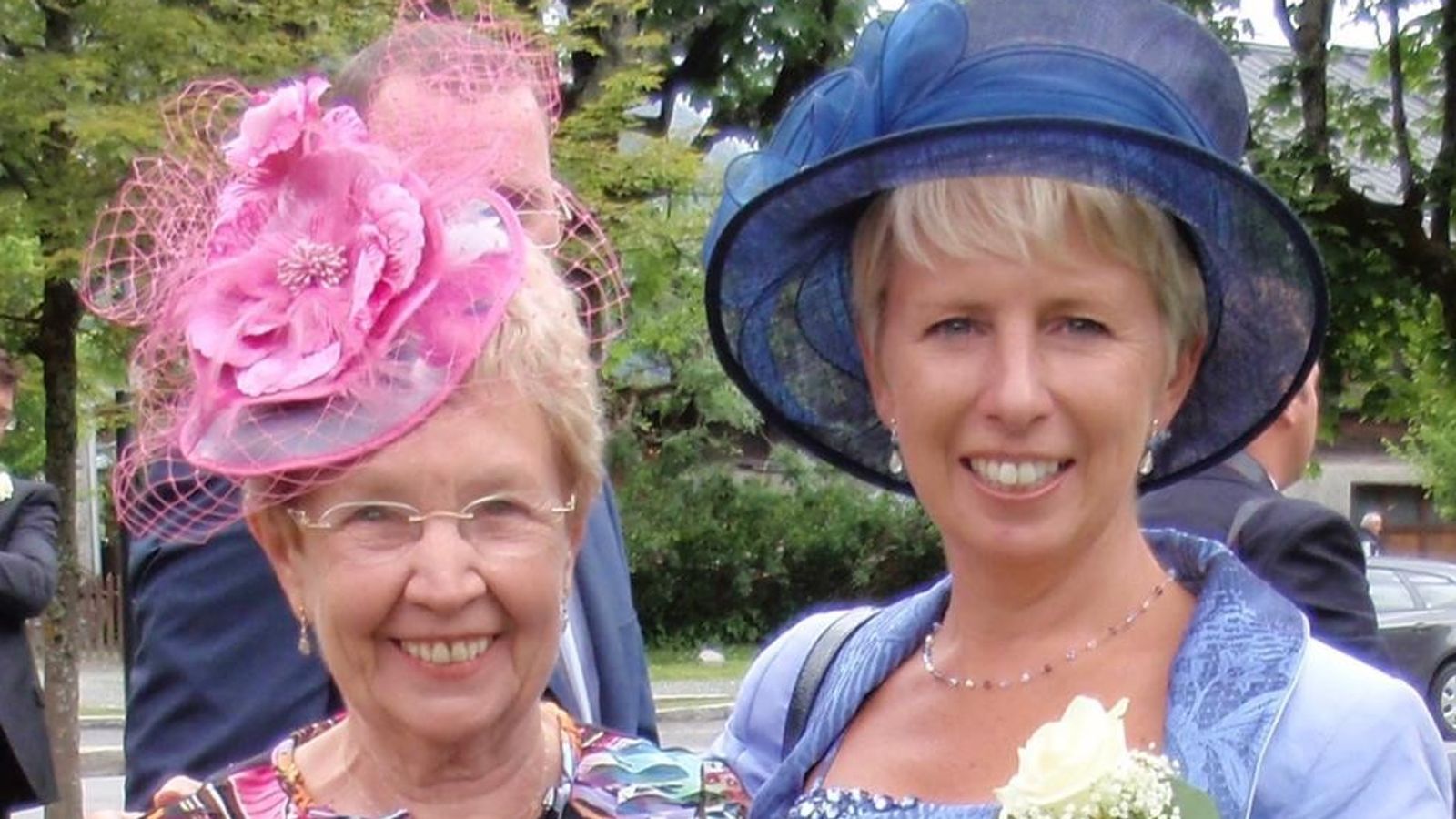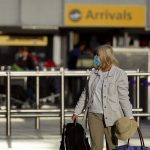Rights groups are calling for a revision of government guidance which they say “falsely imprison” care home residents who go out for day trips.
The Department of Health and Social Care (DHSC) guidance, updated on 7 April, requires residents to isolate for 14 days after a trip out of the home.
John’s Campaign is “very concerned” about the guidance, which it says is likely to deprive residents of their liberty.
It is considering a challenge, with lawyers sending a pre-action letter – the step before formal legal proceedings begin – to the DHSC.
The letter, sent by Leigh Day, says the self-isolation rule “creates an unacceptable risk of illegality because it encourages (indeed, requires) care homes to act unlawfully, namely, by falsely imprisoning care home residents and/or depriving residents of their liberty”.
Nicola Hurst says her 84-year-old mother Imelda Santangeli has not left her care home in 14 months.
“It’s illogical, cruel and I think it’s barbaric,” she tells Sky News.
“She can see the sunshine, she can see the beach, she can see the promenade that she loves so much and she’s not allowed to go and have a walk on it. It’s just cruel.”
Ms Hurst says the idea that she cannot be trusted to keep her mother safe during day trips is insulting.
“I’ve been looking after my mum for 14 years. It’s massively insulting that people don’t trust the one person that loved and cared for her for all these years.”
A five-week consultation has been launched today, and the government is expected to make a decision over the summer.
“What do they think I’m going to do? Am I going to bring my mum down to the beach, look around for somebody that looks like they’ve got COVID-19 and say ‘please sneeze on my mum?'”
Campaigners say the government has not made it clear that the isolation period does not apply to individuals returning from a medical appointment.
They fear this will lead to individuals who feel they could not cope with the requirement of turning down care.
Diane Mayhew, from the campaign group Rights for Residents, says care home residents are being treated as second class citizens.
“We’d like for them to be treated in exactly the same way as the carers are,” she said.
Residents will be asked not to hug or kiss their relatives, although hand-holding will be permitted under the revamped guidance.
“As things ease in society, the carers can go to the hairdressers, they can go and sit outside a pub, they can meet up in groups of six and then they go back into a care home and provide personal care. And all they’re doing is taking the test.”
“A lot of these people use to go to a local community hall and vote, and that’s been taken away from them as well. But if they want to go now they have to isolate for 14 days.”
Mike Padgham, managing director at Saint Cecilia’s Care Services and Chair at Independent Care Group says the government puts care providers in a difficult position.
“It’s often quoted to me ‘it’s only guidance, you don’t have to follow it by law’ which is strictly correct but as any care provider knows, you go against guidance at your peril because the care quality commission, infection control, public health England and even your own insurers, if anything goes wrong then they’re going to come down on you like a tonne of bricks.”
A spokesperson for the DHSC said: “We understand contact with family and friends is vital to the health and wellbeing of residents and we are doing everything we can to provide safe opportunities to meet.
“As we continue to move along the roadmap out of lockdown – guided by the data – we want to enable care home residents to enjoy a range of trips out of the care home, wherever it is safe and proportionate to do so.
“Guidance on visits out of care homes will be kept under review including, when the data shows it is safe, looking again at the requirement for residents to isolate on their return from a visit.”






















